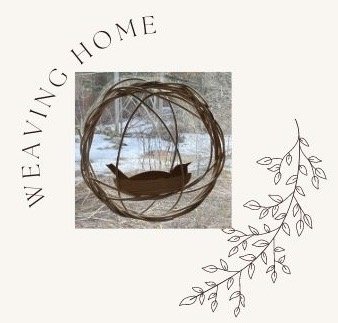"And in this he showed me a little thing, the quantity of a hazel nut, lying in the palm of my hand, as it seemed. And it was as round as any ball. I looked upon it with the eye of my understanding, and thought, ëWhat may this be?í And it was answered generally thus, ëIt is all that is made.í I marveled how it might last, for I thought it might suddenly have fallen to nothing for littleness. And I was answered in my understanding: It lasts and ever shall, for God loves it. And so have all things their beginning by the love of God....In this little thing I saw three properties. The first is that God made it. The second that God loves it. And the third, that God keeps it." - Julian of Norwich, Revelations of Divine Love
During our semi-silent retreat, I spent some time sitting around a campfire shelling beans. Yes, that's right, they were beans that Star had grown in her garden and let dry on the vine. She harvested them and let them dry some more in baskets so that the bean seeds hardened into those wonderful dry beans that you make baked beans with. But these beans weren't the red kidney beans or white navy beans or the black beans you find in a store. No, these beans were speckled. A delightfully spotted bean, smooth and plump, called cranberry beans. You can read about them on the internet, they are an Italian bean (borlotti bean) and can be used in a variety of recipes.
Sitting with feet warming near the fire, picking up bean after bean, breaking apart the crisp shell and watching the beans pop out in the wicker bowl was a calming experience. The magenta and black spots on the cream colored beans caught my imagination - was there a pattern there? A picture? Some secret message? Perhaps the message was just in their being, as Julian of Norwich observes in her hazelnut.
But all the beans weren't perfect. In fact, some were soft and moldy and had to be thrown into the fire. Some were diseased and couldn't be stored with the others. But that is how farming is, not all that is grown can be used, some has to be let go so that others aren't ruined. And then I began thinking, why are some lost? Does that make them worse than the others? We can get into a big theological discussion about the brokenness of the world and why there is so much dualism in the New Testament (sheep go to heaven and goats go to hell.)
The more you think about the dualist nature of the world, the more you see it. Pema Chodron tells a story about walking down the street and noticing how many things are a delight to you, and how many things are an aversion. Like you walk and see a beautiful flower, and you're drawn to it, the next second you step in something that was left by a dog. Disgusting! We are people who make distinctions, that is in our nature. Chodron tells us instead of trying to change that, it's better to simply notice and be aware that we are judging and making distinctions. Don't be down on yourself for doing it, but be aware.
In studying Cynthia Bourgeault's teaching about Pierre Teilhard de Chardin, the reawakening of the ideas of the marriage of science and religion, she quotes: "To take on Teilhard requires a lot of hard work -- and the willingness to let go of more than a few sacred cows. And that capacity ultimately lies -- for us, as it did for Teilhard -- in a vigorous reawakening of contemplative vision: the ability to stop thinking and simply see."
So on that quiet Saturday afternoon, I finally did stop thinking and simply shelled the beans, and there were the three properties that Julian noted above: "God made it, God loves it, God keeps it."

